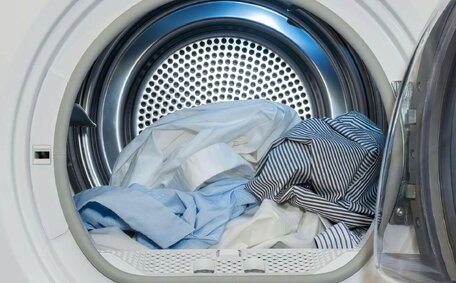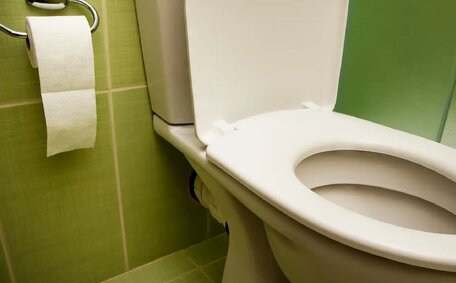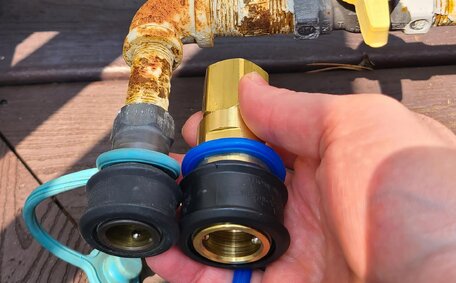Introduction to Hot Water System Maintenance
Regular maintenance is essential to extend your hot water system’s lifespan, boost efficiency, and ensure safety. These practices help prevent early malfunctions and costly repairs, ensuring optimal system performance.
Essential maintenance steps involve annual tank flushing to deter sediment buildup, testing pressure relief valves, and inspecting for leaks or corrosion—each step crucial for your hot water system’s longevity. Regularly replacing worn-out parts such as heating elements and anode rods can extend the life of your system and avert extensive damage.
Although water quality, usage, and age impact your system’s longevity, periodic inspections can greatly extend its service life. Vigilant inspections and professional maintenance every 3-5 years can identify and address issues early, preventing potential problems.
Adhering to these maintenance tips will help extend your hot water system’s functional lifespan and ensure reliable operation. Moreover, efficiently running water systems cut energy costs and guarantee enduring hot water supply for your home.
Signs Your System Needs Maintenance
Various signs may suggest your hot water system needs maintenance or repairs:
- Inconsistent water temperature - If you experience fluctuating hot water that quickly turns lukewarm, this often signals heating element failure or thermostat issues.
- Strange noises - Clanking, banging, or high-pitched squealing noises from your system are signs of wear, with sediment buildup potentially creating internal issues or causing component failure.
- Leaking water - Any water accumulating around your hot water unit or pipes may reveal signs of wear like cracks, corrosion, or loose fittings needing replacement.
- Rusty or discoloured water - Sediment, mineral deposits, and corrosion particles buildup can cause dirty water needing a full system flush.
- Low water flow - Poor water pressure, which can hinder the capacity to adequately heat water, may result from blocked pipes or failing components like inlet valves.
- High energy bills - inefficient operation, shown by reduced efficiency due to wear, corrosion or suboptimal settings increases hot water usage and energy consumption.
Detecting these issues early and conducting regular maintenance every 3-5 years can avert significant problems and increase component longevity.
If your hot water system displays any of these concerning symptoms, contact our licensed plumber to thoroughly inspect your hot water system and rectify issues promptly through maintenance or repairs as needed.
Safety Checks and Component Maintenance
Safety must be the primary concern when conducting any maintenance on your hot water system, in line with our experts’ detailed safety guidelines. Our safety measures recommend waiting for the system to cool down should it have been used recently.
Always turn off the power and shut off the water supply before beginning. Ensure proper ventilation when dealing with gas systems.
Routinely checking and testing components is crucial to ensure the safe and efficient operation of water heating systems:
- Testing pressure relief valves, or TPR valves, yearly by opening them for 5-10 seconds is crucial to ensure they’re not stuck shut. Replace if over 10 years old.
- Level switches: Test function by manually activating the switch. Replace if faulty.
- Sensors: Check sensors are clean and connections are intact. Faulty sensors can prevent heating operation.
- Pipe connections: Inspect for leaks indicating loose fittings. Tighten or replace corroded pipes.
- Insulation: Ensure adequate insulation on hot water lines and storage tanks to maximise efficiency.
Essential hot water system components like heating elements, circulation pumps, and anode rods also require a professional service every five years:
- Heating elements: Descale or replace those over 8-10 years to sustain optimum heating.
- Circulation pumps: Lubricate or replace pumps over 5 years old to sustain good flow.
- Anode rods: Sacrificial anode rods should be inspected and replaced every five years in metal tanks to prevent corrosion.
Flushing the System
Conduct an annual flush to prevent sediment and scale from restricting flow and shortening your hot water tank’s lifespan by following these steps:
- Turn off power and water supply, and activate the drain valve to release pressure.
- Connect a garden hose to the drain valve and place the other end in a suitable drainage area.
- open the pressure relief valve and all hot taps, allowing cold water and air in, which facilitates draining the tank of any sediments in the area around it.
- Once water runs clear with no sediment, close all taps and the water tank valves. Refill the system and restore power.
Flushing particulates from your system can improve its lifespan, water quality, and performance. It improves heating efficiency, can resolve pressure or flow issues, and prolongs component lifespan by preventing internal scale buildup and corrosion.
For complete servicing and optimal maintenance of your water supply, our licensed plumbers provide professional flushing and servicing. We use high-velocity flushing to ensure optimal clearing of sediment, providing the best protection and performance.
Testing Relief Valves
Pressure and temperature relief valves are vital for safety and component longevity within your water system. Test the pressure relief valve which should be maintained annually by following these steps:
- Locate the TPR valve on the top of your water heater or along the first metre of the outlet pipe.
- Carefully lift and release the lever, allowing water to flow for 5-10 seconds before closing.
- Check the drainage area for obstructions before testing. The valve should discharge around 20 litres per minute.
- Replace the entire valve if it fails the test or if over 10 years old as sticky valves can fail dangerously.
Testing confirms that the valve opens correctly under pressure, safely releasing excess hot water, thus reducing explosion risks and increasing the unit’s lifespan. If water does not flow freely, contact our licenced plumbers to repair or replace the valve.
The expansion control valve should be checked while servicing the system. Our experts examine valves during maintenance calls, ensuring ongoing safety and compliance.
Replacing Anodes and Heating Elements
It’s crucial to ensure you periodically replace the sacrificial anode rod and heating element to enhance the lifespan of your hot water system’s storage tank. The anode rod is a consumable metal that corrodes to prevent corrosion damage to the tank itself. Most anodes, crucial for the lifespan of hot water tanks, need replacing every 5-8 years.
As it corrodes over time, the anode rod’s protective effect diminishes. Replacing it on schedule helps avoid sediment buildup and rust corrosion inside the tank which can shorten its lifespan. Heating elements also degrade, losing heating efficiency after 8-10 years.
Signs it’s time to replace anodes or elements include:
- Reduced hot water flow or temperature
- Noisy rumbling or banging inside the tank
- Pool of water under tank indicating a leak
During your hot water service, our licensed plumbers inspect anodes and elements, providing essential maintenance to ensure every 3-5 years. We can test heating efficiency and advise when replacement is optimal for your system.
Maintenance by System Type
Maintenance needs differ slightly based on system type, influencing the specific upkeep required. Understanding key differences helps tailor optimal servicing for the specific type system present in your home.
Storage Tank Systems
Storage tank systems have more components requiring periodic replacement as they age, mainly heating elements and anode rods. Flushing the tank annually also removes sediment, preventing corrosion and efficiency loss.
Tankless Systems
Tankless systems demand annual maintenance of the heat exchanger to diminish mineral deposits and preserve heating efficiency and component integrity.
Heat Pump Systems
For many homeowners, their hot water heat pump systems, including water heaters, the heat exchanger, compressor and refrigerant levels need checking every 2-3 years to sustain efficient heat transfer and smooth operation.
Solar Hot Water Systems
Solar hot water systems, favoured by eco-friendly homes, utilise rooftop panels that absorb solar energy. Ensure panels are clean, connections secure, and pumps function flawlessly for optimal solar gain.
Gas System Maintenance
Gas systems, like many water heating solutions, can also benefit from specific maintenance requirements to ensure safe, efficient operation and prevent potential gas leaks or combustion issues.
Annual checks should include:
- Inspecting the gas line and connections for any leaks using leak detection fluid or an electronic gas detector.
- Examining the burner chamber and flue for blockages. Remove debris or soot buildup to allow proper ventilation.
- Checking the pilot light is burning cleanly with a crisp blue flame. Replace thermocouples powering the pilot if the flame is yellow or irregular.
- Testing ignition of the main burner ensures a smooth lighting sequence without delays or misfires.
- Cleaning heat exchanger surfaces prevents soot buildup impairing heat transfer.
The gas control valve is another component our technicians check and calibrate to maintain the optimal gas flow rate during professional servicing calls.
Keeping your gas hot water system well-maintained is an essential part of preventing problems like pilot light outages, ensuring efficient hot water delivery and most vitally protecting your household from dangerous gas leaks or carbon monoxide risks.
Electric System Maintenance
Electric hot water systems require minimal maintenance, but periodic checks can ensure they can last up to 15 years while sustaining efficient operation with your new hot water system.
Perform yearly inspections with a focus on:
- Checking heating elements for scale buildup or corrosion which reduces heating performance.
- Testing thermostats and sensors ensure accurate water temperatures.
- Inspecting electrical connections for integrity and ensuring temperature pressure changes are well-regulated.
- Cleaning out sediment that can accumulate over time in the tank.
- Ensuring that the tempering valve and pressure relief valves in your hot water system can function properly is part of routine maintenance.
Replacing heating elements every 8-10 years or earlier if heavily scaled maintains optimal heating efficiency. Our technicians inspect electric system components thoroughly during scheduled maintenance.
Solar System Maintenance
Maintain your solar water heater by cleaning solar collectors, ensuring secure connections, and servicing the pump each year. This maximises system efficiency to harness the sun’s renewable energy for water heating.
To care for the hot water system in your solar setup:
- Inspect solar panels monthly and wash biannually. Gently hose away dirt, dust or grime that reduces absorption of sunlight.
- Check pipe connections yearly for leaks indicating loose fittings. Tighten where required.
- Test the circulation pump by activating it manually to ensure smooth operation without rattling noises.
- Lubricate pump bearings and seals every 3 years as part of scheduled servicing to prevent premature wear.
- Monitor digital displays and gauges to ensure proper temperature readings and water flow.
- Trim back overhanging branches which can shade panels compromising solar gain.
Properly maintained solar collectors increase your system’s efficiency by harnessing free solar energy to heat water. Contact our licenced technicians to professionally service your solar hot water system when required.
Heat Pump System Maintenance
Maintain your heat pump hot water system by closely inspecting the unit every 2-3 years to uphold efficient functioning.
Maintenance should check:
- Refrigerant levels - Low refrigerant impairs heat transfer. Pressure tests determine if leaks need repair.
- Ventilation - Ensure vents are clear to prevent overheating compromising performance.
- Air filters - Clogged air filters reduce airflow over evaporator coils cutting efficiency.
- Electrical terminals - Inspect wire terminals for corrosion and secure connections.
- Heat exchanger - descale mineral buildup maintaining smooth water flow.
Our expert technicians also monitor life of your system through digital displays during maintenance checks in your residence. Error code tracking helps diagnose problems early before failure occurs.
Proactive maintenance maximises longevity for heat pump systems, ensuring consistent hot water delivery with low operating costs benefiting households for years.
When to Call a Professional
While DIY tasks can maintain your system and tackle many minor issues, complex repairs or diagnosing problems often requires professional assistance. There are key times it becomes essential to contact a licenced plumber for hot water system support.
Call our team if your gas water heater system experiences any of the following:
- Total hot water failure or losses of pressure
- Faulty pressure relief or tempering valves
- Significant and unexplainable increases in energy bills
- Strange noises from the unit like banging or rumbling
- Leaking pipes, valves or components
- Discoloured or contaminated water
For optimal results, reach out and consider servicing your hot water system every 3-5 years, or call professional plumbers when our technicians perform comprehensive checks tailored to your system’s needs. This professional care prolongs the lifespan of hot water systems, enhancing efficiency and safety.
Don’t hesitate to call Ryde Plumbing on 1300 349 338 for all hot water system repairs, installation and maintenance needs. Our licenced expert team is always here to help with maintenance and repairs.
Conclusion
Routine maintenance is crucial for the longevity, efficiency, and safety of your hot water system. Following the best practises outlined here not only keeps components functioning optimally but ensures your household can enjoy hot water comfort continuously.
In addition to standard upkeep, scheduling professional servicing every 3-5 years helps maintain your system’s optimal condition. Our expert technicians assess all parts and recommend when replacements are needed, guaranteeing reliable operation for years.
When expert attention is required, we get the call as your trusted plumber at Ryde Plumbing for any installation, repair, or maintenance needs. Our decades of expertise ensure your hot water system operates at its best. Investing a little time and care into maintenance saves money over your system’s lifespan and prevents untimely breakdowns.
Team up with Ryde Plumbing to boost your water system’s performance and efficiency, securing a constant hot water supply for your home.






